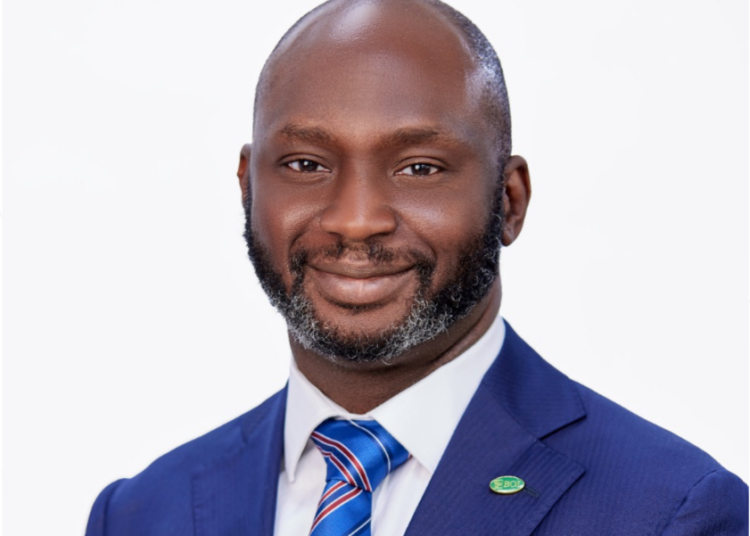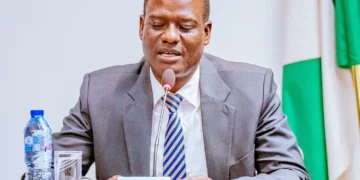As Nigeria drives towards the $1 trillion economic agenda, the Development Finance Institutions (DFIs) are increasingly expected to play critical roles in providing funding for the private sector and fostering development. DFIs are tasked with bridging funding gaps through direct loans, on-lending, equity investments, and other mechanisms that encourage investments.
However, access to finance for industrial development has remained a key challenge in Nigeria, especially by micro, small, and medium enterprises (MSMEs). The high-interest rates and collateral requirements from banks can make it close to impossible for new business owners to access capital to grow their business. DFIs are seen as a solution to providing finance for companies to produce locally.
Roles Of DFI
Development Finance Institutions exist traditionally to address market failures and as a complement to government resources and market financing. The dual roles of these institutions involve financing development projects and acting as a facilitator of finance in the broader industrialisation and economic development strategies of countries. DFIs’ in addition to their mandates, seek to enable expansion of already existing pro-poor infrastructure and act as catalysts for accelerated industrialisation, economic growth and human resource development.
Nigeria has seven Development Finance Institutions namely; Bank of Industry (BOI); Federal Mortgage Bank of Nigeria; Nigerian Export–Import Bank (NEXIM); Bank of Agriculture; Infrastructure Bank; National Economic Reconstruction Fund (NERFUND) and Development Bank of Nigeria.
Some of the challenges faced by these institutions include poor corporate governance, low capitalisation, inadequate skilled manpower, and poor business models. In order to be repositioned to perform the role envisioned for them, the DFIs need to be granted operational autonomy.
Need For Enlarged Balance Sheet Enhance Development For DFIs
Industry stakeholders have called on the federal government to recapitalise the DFIs like BOI and BOA to adequately meet the industry credit need at single digit interest rate.
The director/CEO of the Centre for the Promotion of Private Enterprise (CPPE), Dr. Muda Yusuf stated that the government should expedite action to boost capitalisation of the development finance institutions; BOI, BOA, NEXIM in order to deepen development finance interventions.
He said that there is need to specifically revitalise and restructure the Bank of Agriculture to support the agricultural sector and agro-allied industries with the much-needed concessionary financing, saying that “current high interest rate in the commercial banks continues to impede the recovery and growth of the Nigerian agricultural and agro-allied sectors of the economy.”
The Manufacturers Association of Nigeria (MAN) requested that the federal government recapitalise the Bank of Industry (BOI) to meet the growing credit demand of industries.
MAN said this in its position paper on Nigeria’s third quarter gross domestic product (GDP), where the group stressed the need to enhance credit information systems and broaden the scope of assets for collateral. “It is critical to create special windows for providing single-digit interest rates to productive sectors and relax stringent conditions for SMEs to access funding,” MAN said.
It also noted that “the government must also recapitalise the Bank of Industry (BOI) to meet the growing credit demand of industries.”
According to an analyst, Dr. Dayo Bello, in scaling up its capacity for more catalytic roles, the Bank of Industry (BOI) mobilised €1.879 billion from the international financial markets, which is the highest amount ever raised by any Nigerian or African development financial institution (DFI). “The newly raised funding is set to significantly expand the Bank’s balance sheet, increasing it by N3.3 trillion to reach a projected balance sheet footing of N7.1 trillion, up from N3.9 trillion reported in 2023. This interest underscored BOI’s status as a trusted partner in advancing Nigeria’s industrialisation and economic transformation and highlighted its growing appeal to investors from emerging markets.
“BOI’s ability to raise €1.879 billion in 2024 was a testament to the quality of its financials. The 187.9 per cent oversubscription of the syndication highlighted the innovative financing achieved through a dual-layer guarantee structure, leveraging support from the Africa Finance Corporation (AFC) and the Central Bank of Nigeria (CBN) for optimal risk-sharing. This structure allowed BOI to secure much lower interest rates than those typically applied to Nigerian debt instruments, resulting in savings of approximately 3.6 per cent per annum, or an estimated N295.7 billion over the three-year tenor. These favourable terms will reduce the cost of borrowing for the real sector, making it more competitive,” he said.
According to the BOI, the €1.879 billion fundraising will go a long way in bridging the current annual development financing funding gap of over $35 billion (BCG, 2024). The fund, BOI said, will support the implementation of its Strategy for 2025-2027.
The bank stated, “One of the key themes is to increase BOI financing along several areas to meet Nigeria’s developmental needs. This fundraiser provides the capacity for BOI to deliver on its mandate. BOI will seek to address infrastructure challenges which impose a high cost of doing business on manufacturers in Nigeria. Infrastructure finance requires long-term and high-value financing, which the freshly raised fund will support.
“The confidence in BOI demonstrated by this historic transaction will enhance its ability to access additional sector-specific funds, particularly funds that are targeted at vulnerable sectors and segments like Gender, Youth, MSMEs, Agriculture, ESG and Sustainability, etc.
“The Bank would also be able to more specifically programme and fund impactful projects that will lead to Nigeria’s long-term industrial development on a transformational basis due to the flexibility and extent of funding available to BOI.”
From a risk management perspective, the Bank said, “The funds will help the bank with credit risk, liquidity risk, market risk, operational risk and reputational risk. Green, Climate and Environmental Financing are also key considerations of BOI’s new strategic focus. The €1.879 billion fund raised would enable the Bank to play more efficiently in this space.”
Managing Director, BOI, Dr Olasupo Olusi, stated that the low pricing and favourable terms would ensure that the much-needed low-interest and longer-tenured funds are available to Nigeria’s growing private sector in line with the vision of President Bola Ahmed Tinubu.





